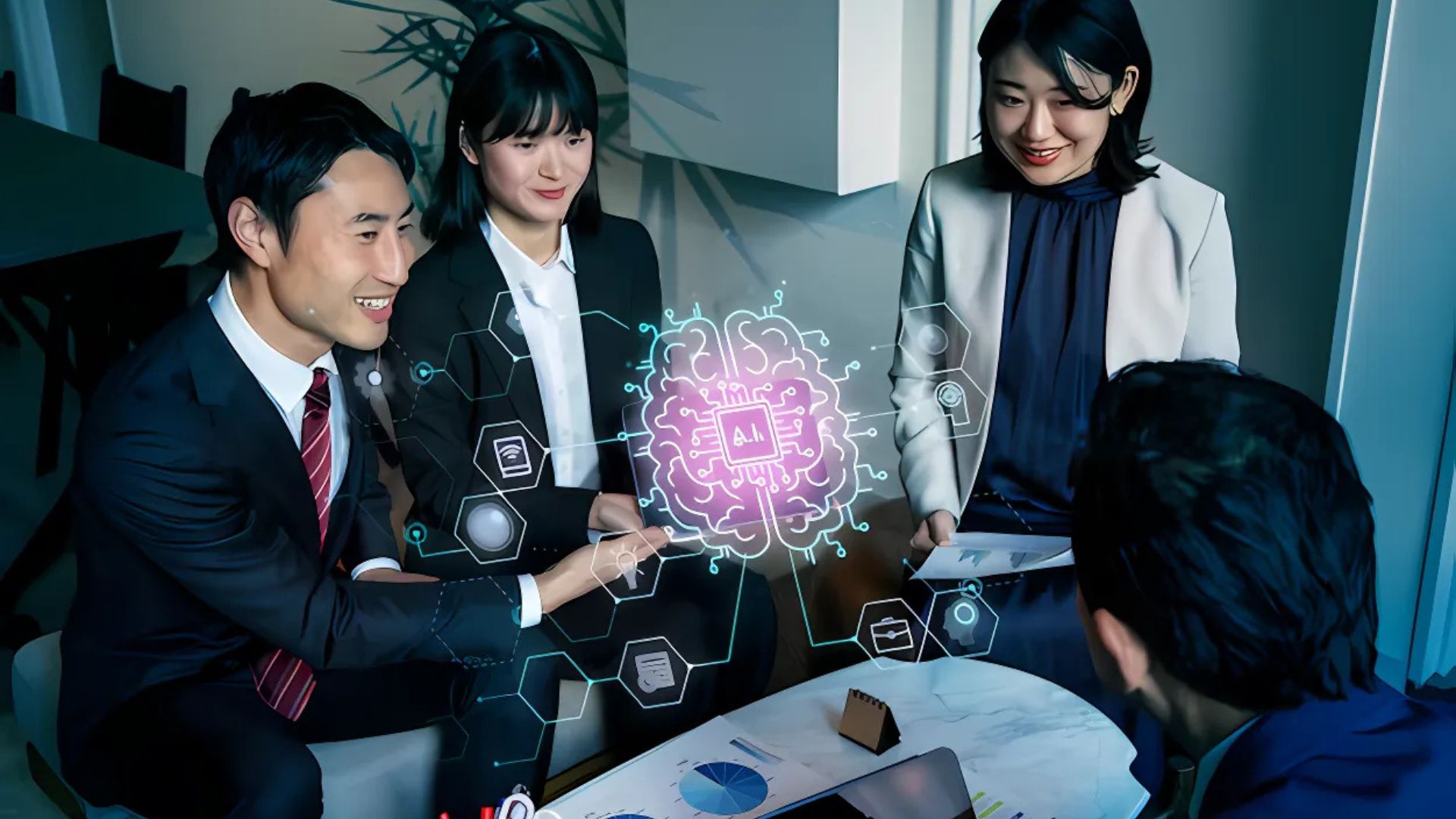
Related Articles

IT Outsourcing
RSK BSL Tech Team
May 23, 2025
|
|

AI Tech Solutions
RSK BSL Tech Team
May 19, 2025
|
|

Software Development
RSK BSL Tech Team
May 16, 2025
|
|

Software Development
RSK BSL Tech Team
May 13, 2025
|
|

IT Outsourcing
RSK BSL Tech Team
May 4, 2025
|
|

Mobile Application Development
RSK BSL Tech Team
April 30, 2025
|
|

Software Development
RSK BSL Tech Team
April 27, 2025
|
|

Hire resources
RSK BSL Tech Team
April 24, 2025
|
|

Software Development
Praveen Joshi
April 20, 2025
|
|

Artificial Intelligence
Praveen Joshi
April 17, 2025
|
|

Pen Testing
Praveen Joshi
April 15, 2025
|
|

AI Tech Solutions
RSK BSL Tech Team
April 14, 2025
|
|

Software Development
RSK BSL Tech Team
April 9, 2025
|
|

Pen Testing
RSK BSL Tech Team
April 7, 2025
|
|

Software Development
RSK BSL Tech Team
April 3, 2025
|
|

Cloud Application
RSK BSL Tech Team
March 31, 2025
|
Why Hiring AI Engineers Can Give Your Company a Competitive Advantage in 2025
In 2025, the global AI market is projected to reach a staggering $190 billion, revolutionising industries and redefining competitive landscapes. Companies that hire AI engineers are at the forefront of this transformation, leveraging cutting-edge technology to drive innovation and efficiency. This blog explores how hiring AI engineers can provide your company with a significant competitive advantage, enabling you to stay ahead in an increasingly AI-driven world.
Current Trends in AI Engineering
In 2025, AI engineering is witnessing remarkable advancements, particularly in machine learning, neural networks, and AI-driven automation. Machine learning algorithms are evolving, allowing for more accurate forecasts and decision-making. Neural networks are evolving with deeper architectures, enhancing their ability to process complex data and perform tasks such as image and speech recognition. AI-powered automation is simplifying operations in a variety of industries, eliminating the need for human interaction in repetitive tasks.
Impact on Industries
- Healthcare: AI is improving patient outcomes, providing tailored treatment regimens, and increasing diagnostic accuracy.
- Finance: AI is being used for fraud detection, risk management, and automating customer service, leading to more secure and efficient financial operations.
- Manufacturing: Predictive maintenance and quality control powered by AI are reducing downtime and improving product quality.
- Retail: AI is transforming customer experiences through personalised recommendations and efficient inventory management.
- Transportation: AI-driven systems are optimising logistics, improving traffic management, and advancing autonomous vehicle technology.
- Energy: AI is optimising energy consumption, enhancing grid management, and supporting the integration of renewable energy sources.
The Role of AI Engineers
Skill Set:
- Data Analytics: Expertise in analysing large datasets to extract meaningful insights.
- Machine Learning Algorithms: Proficiency in designing and optimising algorithms that enable machines to learn from data.
- Neural Network Design: Ability to create and fine-tune neural networks for tasks such as image and speech recognition.
- Programming: Strong coding abilities in languages such as Python, R, and Java are required for creating AI models.
- Problem-Solving: Innovative thinking to tackle complex problems and develop efficient AI-driven solutions.
Applications:
- Predictive Maintenance: AI is being used to predict equipment breakdowns and schedule maintenance, resulting in reduced downtime and expenses.
- Design Optimisation: Enhancing product designs through AI-driven simulations and optimisations.
- Customer Insights: Analysing customer data to provide personalised experiences and improve satisfaction.
- Automation: Using artificial intelligence systems to automate repetitive operations, thus enhancing efficiency and production.
- Healthcare Innovations: Creating AI models that assist in diagnosing diseases and personalising treatment plans.
Competitive Advantages of Hiring AI Engineers
- Innovation and Efficiency:
AI engineers are at the forefront of driving innovation and improving operational efficiency. They can improve efficiency by streamlining processes, reducing manual chores, and utilising advanced analytics and automation. For example, AI-powered automation can handle monotonous chores, freeing up staff’ time for more strategic initiatives. Additionally, AI engineers use machine learning algorithms to uncover insights from vast datasets, enabling companies to innovate faster and more effectively.
- Cost Reduction:
AI can cut expenses dramatically by streamlining operations and reducing downtime. Predictive maintenance, powered by AI, can foresee equipment failures before they occur, reducing unplanned downtime and maintenance costs. Furthermore, AI-driven process optimisation can lead to more efficient resource utilisation, cutting operational expenses. Businesses that integrate AI into their buying processes have reported up to 45% cost savings.
- Enhanced Decision-Making:
AI engineers play a crucial role in enhancing decision-making through data-driven insights. By analysing large volumes of data, AI systems can identify patterns and trends that might not be immediately apparent. This enables firms to make better-informed, strategic decisions. For example, AI can provide real-time insights into market trends, customer behaviour, and operational performance, enabling companies to respond swiftly to changing conditions and stay ahead of the competition.
Real-World Examples
- RSK Business Solutions: RSK Business Solutions developed an AI-powered customer support chatbot that allows users to ask questions in natural language and receive instant, accurate responses. This solution has streamlined operations across multiple industries, including customer support, HR, healthcare, finance, retail, legal, and IT. The operational benefit has been substantial, resulting in increased productivity and a 40% reduction in the customer support workload.
- Vinsol: Vinsol specialises in software development with a strong focus on AI and machine learning solutions. They have developed AI-powered applications for various industries, enhancing operational efficiency and customer engagement. Their AI-driven projects have helped clients streamline processes and gain valuable insights from data.
- Radiansys: Radiansys provides IT consulting and software development services, including AI and machine learning solutions. Their AI-driven projects have optimised processes and improved decision-making for clients across different sectors. By leveraging AI expertise, Radiansys has enabled businesses to achieve higher productivity and cost savings.
Future Outlook
The future of AI engineering is poised to bring transformative changes across various industries. By 2025, AI systems are expected to become more autonomous, capable of learning from real-time data and adapting to new situations without human intervention. This shift towards self-supervised and continual learning will enable AI to refine its understanding and performance continuously.
Additionally, advancements in generative AI will lead to more sophisticated models that can create high-quality content, from text and images to immersive digital experiences. The integration of AI in scientific research will accelerate discoveries and innovations, particularly in fields like healthcare, climate science, and materials engineering.
Strategic Planning:
- Invest in AI-Powered Tools: Companies should invest in AI tools that align with their business objectives. This includes AI-driven analytics, automation, and decision-making systems that can enhance productivity and innovation.
- Foster AI Literacy: Educate employees on AI capabilities and ethics to build a culture of AI literacy. This will ensure that the workforce is prepared to work alongside intelligent systems and leverage AI effectively.
- Develop an AI Governance Framework: Establish a governance framework to ensure responsible and transparent AI usage. This includes setting guidelines for data privacy, algorithmic fairness, and ethical considerations.
- Conduct Skills Gap Analyses: Identify reskilling needs as job roles evolve due to automation. Offer training programs to help employees acquire new technical skills and adapt to AI-driven changes.
- Promote Cross-Departmental Collaboration: Encourage collaboration between departments to increase AI awareness and integration across the company. This will aid in finding new potential for AI applications and encouraging innovation.
Conclusion
As we move further into 2025, the strategic hiring of AI engineers can transform your company’s competitive landscape. By driving innovation, improving efficiency, and enhancing decision-making, AI engineers are essential for staying ahead in an AI-driven world. Companies that recognise the value of AI developers for hire will be well-positioned to capitalise on these advancements, ensuring sustained growth and success in an increasingly competitive market.
RSK BSL Tech Team

 Share
Share Post
Post Tweet
Tweet Copy
Copy

